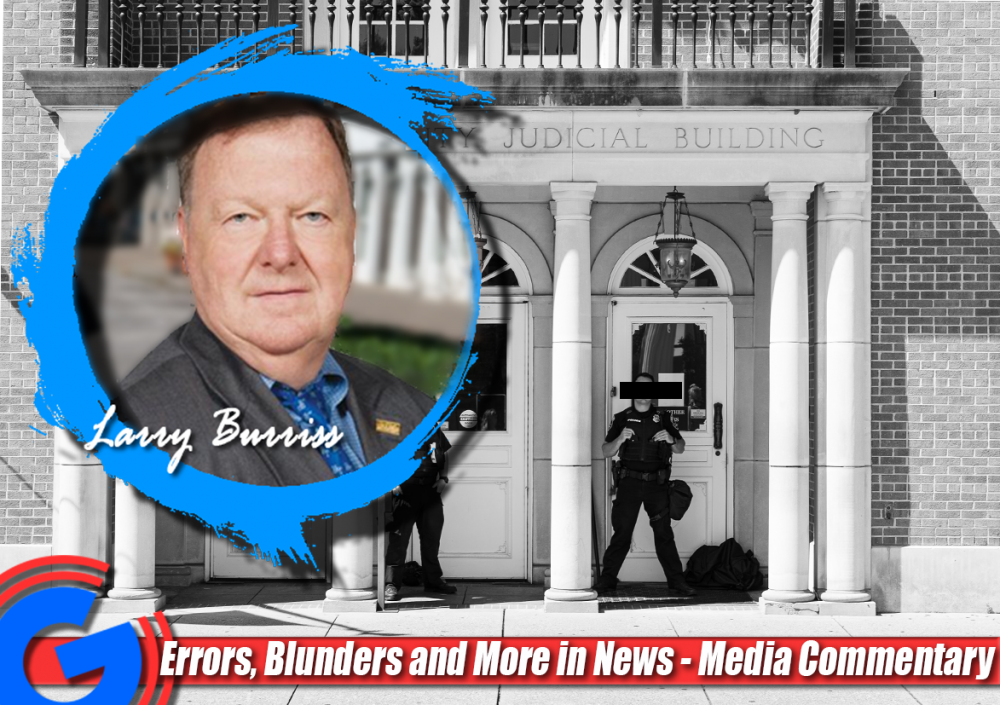Mistakes and errors in the news, along with over reactions. Blunders and accidental sayings that may not belong. MTSU Professor of Journalism Larry Burriss dives into news outlets and reporters sometimes taking themselves a little too serious, or perhaps accidentally pushing a story or an issue in the wrong direction. Hear his commentary above. Hear past reports from Dr. Burriss by clicking the image below.
Verbatim: "OK, I’m going to come right out and say it: I think there is a place for errors, mistakes, and over-reactions in the news. But only because they can be so much fun.
Now I don't mean a simple blunder like a misspelled word in a headline, or blowing a line in a movie. Or even a deliberately planted piece of misinformation. I mean something we have gotten honest-to-goodness, totally, completely wrong?
On Oct. 16, 1922, North Carolina State College of Agriculture began operating its first radio station. At the opening ceremony, former Navy secretary Josephus Daniels said, "Nobody now fears that a Japanese fleet could deal an unexpected blow to our Pacific possessions...Radio makes surprise impossible." Words spoken apparently 19 years too soon.
Or try this one: On Oct. 17, 1845, The entire audience walked out of a reading of "The Raven," not because of the poem, but in objection to the reader, Edgar Allan Poe.
And people think audiences these days are too tough.
Even people who are supposed to know what they're doing can make some silly mistakes. On another October 17, this time 1961, The New York Museum of Modern Art put the Henri Matisse painting "Le Bateau" on display. Unfortunately, they hung the painting upside-down. And even worse, the error wasn't discovered for some six weeks. I wonder what the art critics had to say about that?
Of course, some things have happened that we really aren't sure if they are mistakes or not, of if they are good or bad.
On Oct. 18, 1892, Alexander Graham Bell sent the first phone message from New York to Chicago. And on another October 18, 82 years later in1974, the movie, "The Texas Chain Saw Massacre" opened.
One might be considered a curse, and the other a blessing. I’ll let you figure out which is which.
I think we in the media sometimes take ourselves way too seriously. You name a topic, and there is someone, somewhere ready to do an editorial, dissect it on a talk show, or find someone who did it with someone else's wife or husband.
Maybe we need to lighten up a bit, and stop to smell the geraniums, er, uh, roses. - I'm Larry Burriss."
About Dr. Burriss - Larry Burriss, professor of journalism, teaches introductory and media law courses. At the graduate level he teaches quantitative research methods and media law. He holds degrees from The Ohio State University (B.A. in broadcast journalism, M.A. in journalism), the University of Oklahoma (M.A. in human relations), Ohio University (Ph.D. in journalism) and Concord Law School (J.D.). He has worked in print and broadcast news and public relations, and has published extensively in both academic and popular publications. He has won first place in the Tennessee Associated Press Radio Contest nine times. Dr. Burriss' publications and presentations include studies of presidential press conferences, NASA photography, radio news, legal issues related to adolescent use of social networking sites, legal research, and Middle Earth.
Dr. Burriss has served as director of the School of Journalism, dean of the College of Mass Communication and president of the MTSU Faculty Senate. He was appointed by Gov. Phil Bredesen to serve on the Tennessee Board of Regents. He was a lieutenant colonel in the U.S. Air Force and served on active duty in Mali, Somalia, Bosnia, Central America, Europe and the Pentagon.



